Grass Pavement: 4 Benefits of Paving with Grass
Pavement serves a critical role in our society. It provides a sturdy, long-lasting place for us to park or drive our vehicles and other methods of transportation. But, while the popular pavement choices have served us well over the years, they are not without their own faults and have had some immense negative effects on our communities as well.
First and foremost is flooding due to the impervious nature of concrete and asphalt. Second is pollution from the toxic runoff to the manufacturing CO2 emissions.
Improvements have been made in pavement technology that have largely eliminated these negatives while maintaining and even improving upon the benefits of traditional pavement materials like asphalt and concrete. One of these innovations is grass pavement, with names such as driveable grass or the latest innovation TRUEGRID ROOT.
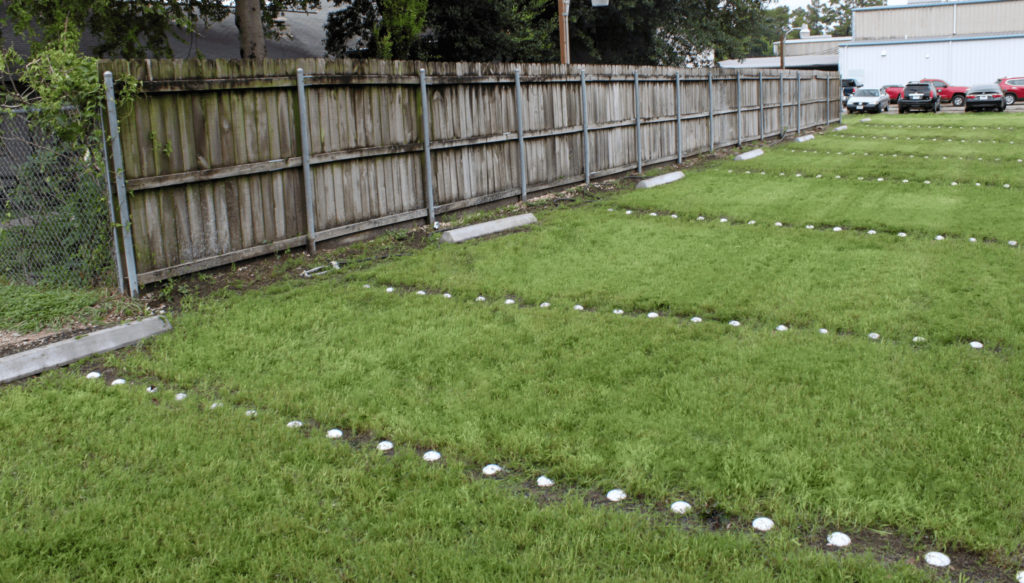
Grass pavers have changed the pavement industry and provided many more options for those looking to install driveways, parking lots, and other types of pavement that act, function and appear as nature intended. If you’re in a position where you need to install some form of pavement, you might want to give grass pavers some consideration. Let’s go over a few of the benefits of grass pavers:
1. Eco-Friendliness
Grass pavers are one of the most environmentally-friendly options available when it comes to pavement. TRUEGRID makes their pavers from 100% recycled plastic, a stark contrast to the fossil-fuel powered, dirty-burning process of making, transporting, installing, and maintaining other types of pavement like asphalt and concrete.
TRUEGRID works hard to ensure that every step of the way from production to installation of their products is as eco-friendly as possible. Beyond their pavement systems assist nature in filtering automobile pollutants from the environment for decades.
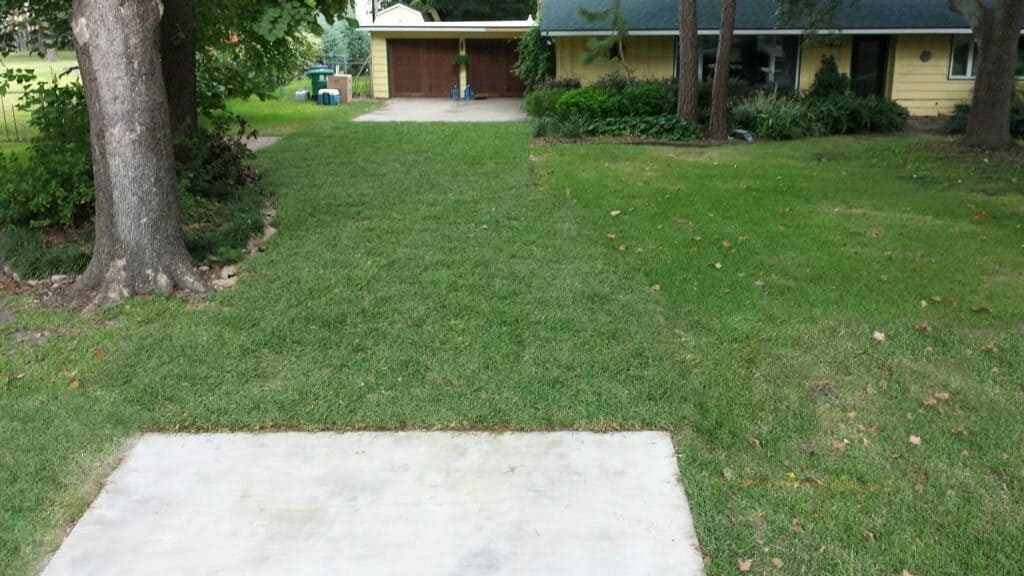
Grass pavers are also highly sustainable compared to impermeable pavement, as they allow the passage of stormwater directly through and into the soil beneath. This is preferable to stormwater being redirected into our waterways via drainage systems because it can be naturally and safely filtered back into the water table through the soil, Pollutants are removed via the bioremediation process where microbial action in the soil feeds on auto pollutants and essentially cleanses stormwater before it recharges aquifers that feed our water supply.
2. Ease of Installation
Grass pavers are incredibly easy to install. TRUEGRID has three types of pavers that can be used with grass. The easiest (and least expensive) is ROOT. To prepare the grass area simply wet the area to be stabilized, then ROOT pavers are pressed into the grass stabilizing the surface. It can be driven on immediately. No excavation needed. ROOT pavers are especially simple to lay out, and can be trimmed to fit around other features or highlights. The grass will grow in over a few weeks and be mostly invisible. You can now park on the ROOT grass area without rutting or sinking. TRUEGRID also offers the PRO LITE which calls for excavation, filling with soil and seeding or pressing a thin sod into the pavers. PRO PLUS is installed the same way but with a rock base and is great for heavy commercial applications such as fire lanes.
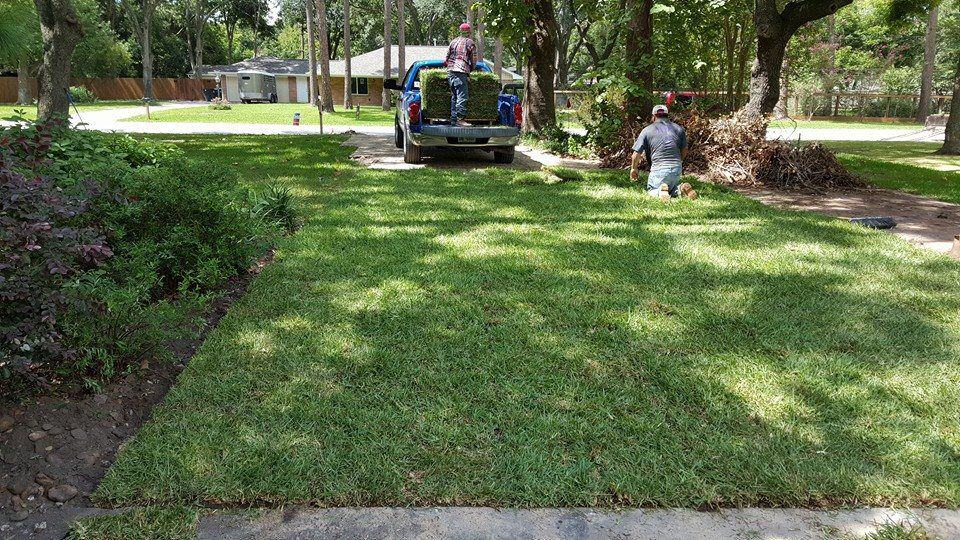
Real grass and artificial turf both work effortlessly with the TRUEGRID paver system.
3. Low Maintenance Needs
The maintenance you need to perform on grass pavement is the same as what you perform on regular grass or turf. Just water and mow it, that’s all. If the subgrade has been leveled properly, you won’t have any issues with your grass parking pavers, even with heavy, continual use.
4. Aesthetic Flexibility

Parking lots, driveways, and other concrete or asphalt roadways are bland and unappealing. With grass pavers, you can build pavement right into your lawn. The grass will be just as soft and is less likely to develop ruts or mudholes, since the pavers allow water to flow through instead of trapping it near the surface.
Other Things to Consider
When opting for grass pavement instead of concrete, you should take into consideration the cost-effectiveness of installing grass pavers. The pavers are incredibly inexpensive compared to more traditional paving materials such as concrete and asphalt. No added drainage systems are necessary. Because the installation is so simple and able to be completed in a day or less, this also drives down the overall cost of installing grass pavement.
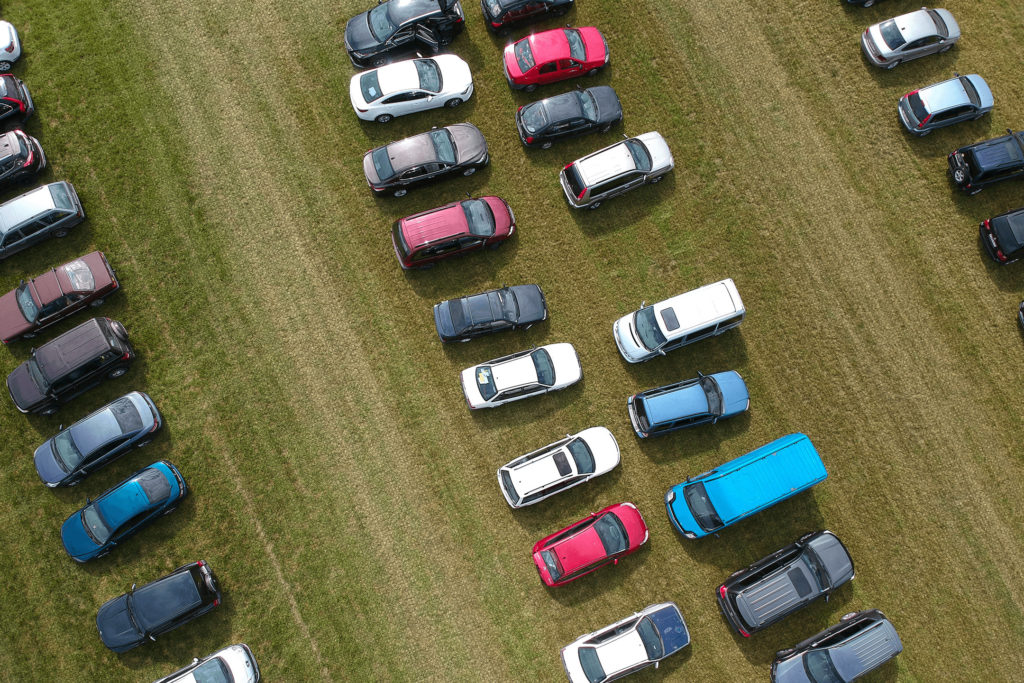
Add the almost non-existent cost of maintenance over the long-term, and you can see why the cost-effectiveness of grass pavement is one of it’s most attractive benefits. Although the cost is far less than that of concrete or asphalt, grass parking pavers perform equal to, if not better than, the other more traditional materials.
Grass Paving Has a Wide Variety of Advantages Over Concrete
Whether you’re looking to install a parking lot, firelane, sidewalk, driveway, or any other type of paving, you should seriously consider grass pavement before deciding on traditional paving materials like concrete or asphalt.
Not only do grass parking pavers, like the kind made by TRUEGRID, outperform concrete and asphalt in terms of durability, they cost far less, are more eco-friendly, require less maintenance, and give you much more flexibility when it comes to stylistic creativity and aesthetic appeal.
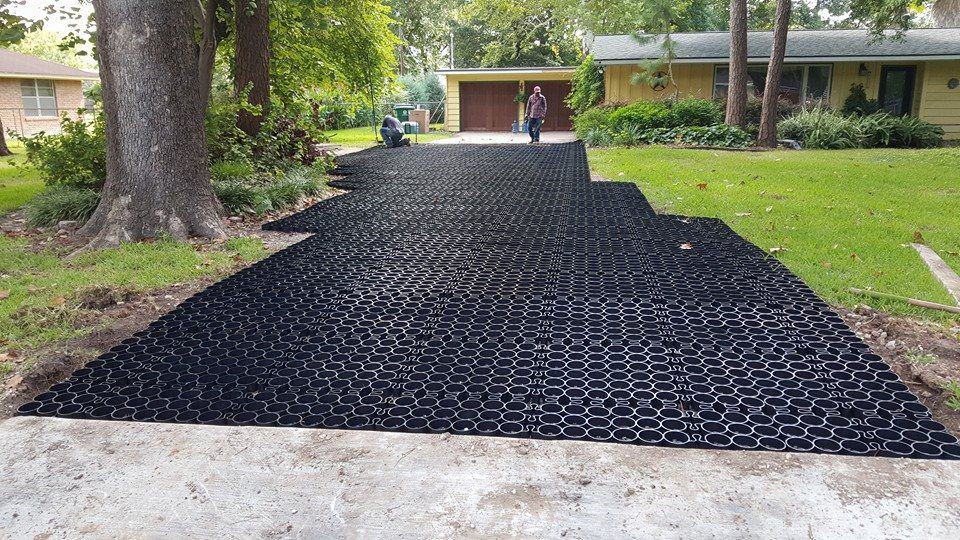
The permeability of grass pavement is another huge benefit and one that can make or break some types of land that are prone to flooding. The high infiltration rates of stormwater and the detention base beneath the grass pavement allow your paved area to work in tandem with Mother Nature, rather than against her. All of these benefits make grass parking pavers a very wise and eco-friendly paving option in 2020 and beyond.
Contact a professional at TrueGrid to see how you can achieve superior permeability with grass pavers.
When it comes to building parking lots, there aren’t a whole lot of options in terms of what kind of material you can use. The most commonly used materials are, of course, asphalt and concrete. Both types of materials come with different considerations to keep in mind, and you might be surprised to see how they stack up with alternative materials.
In case you’re planning on building a parking lot, let’s look at a concrete parking lot vs. asphalt in terms of performance, cost, and more:
Asphalt Parking Lots and Heat

If you live in a hot climate, asphalt is likely going to cause you more problems than it’s worth. Asphalt gets sticky in hot temperatures because of its color and chemical composition. It attracts heat and reflects none of the UV rays, resulting in a sticky, oily parking lot that can leave stains and become too hot.
Asphalt is also stylistically limited, with your only color options being black with white or yellow lot lines. In addition, asphalt also has the added disadvantage of being relatively high-maintenance. Because of asphalt’s inability to handle fluctuating temperatures or high levels of traffic for too long, it requires regular maintenance work which is an added expense.
Asphalt isn’t all that cheap to install and is more harmful to the environment than other types of paving material. Being impervious, asphalt also requires some kind of drainage system for stormwater since it won’t allow any liquid to pass through. This means an even larger cost of installation and a longer wait-time as well.
As an impervious surface, asphalt is often restricted by code. You have to offset your impervious area with a expensive detention pond or drainage system. Not only does this cost you more, it takes upa good chunk of your property.
Concrete Has Its Own Problems
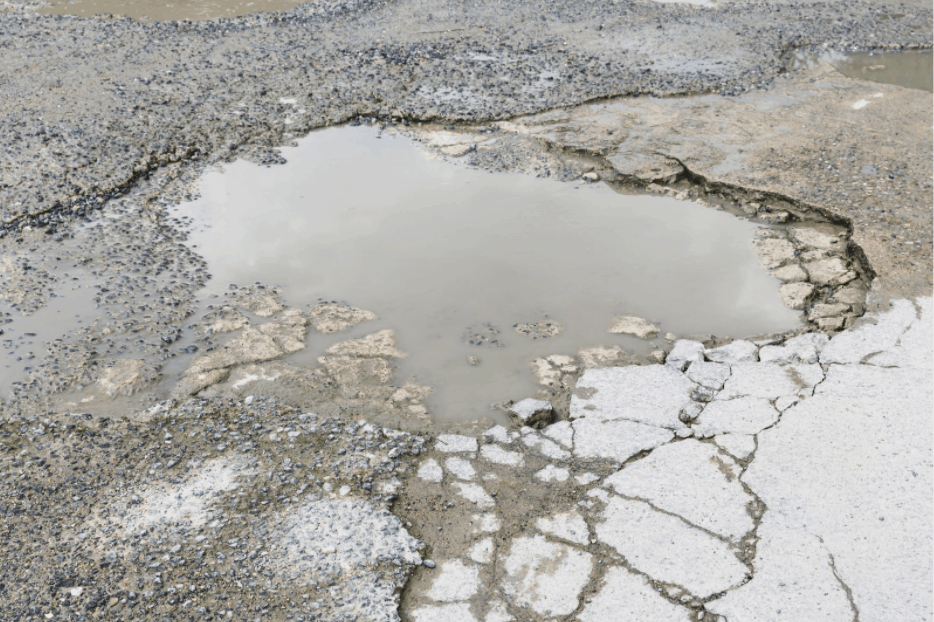
You might think that a concrete parking lot vs. asphalt is superior after reading the list of issues with asphalt, but concrete is far from perfect. As paving material, concrete can easily crack, chip and develop ruts over time.
It’s also not cheap in terms of installation and takes even longer to install than asphalt. The production of concrete is also harmful to the environment as the equipment and chemicals needed to produce and install it are not considered eco-friendly.
Also, just like with asphalt, concrete is impervious. This means it doesn’t allow water to pass through, so concrete parking lots need to have drainage systems installed just as asphalt ones do. These drainage systems are costly and take a lot of time to install properly. Your site may even require a detention pond.
Concrete, like asphalt, is restricted by code. The amount of land you can use for your building is reduced by the size of your impervious concrete parking..
Permeable Paving is a Better Alternative
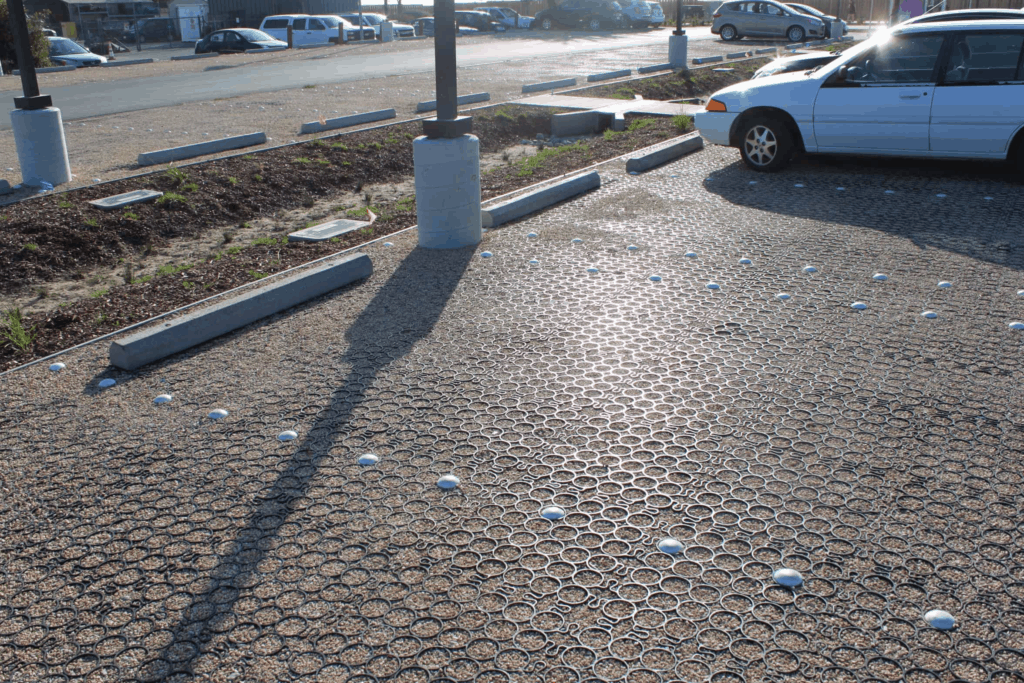
Permeable pavers like those produced by TRUEGRID are a far superior alternative to a concrete or asphalt parking lot. The main advantage that they hold over these two materials is that permeable pavers are 100% pervious.
This means they allow stormwater and other liquids to pass right through them and into the soil or a detention pond beneath. While they are permeable, TRUEGRID’s pavers also function just as well, if not better than concrete and asphalt, as a parking lot material.
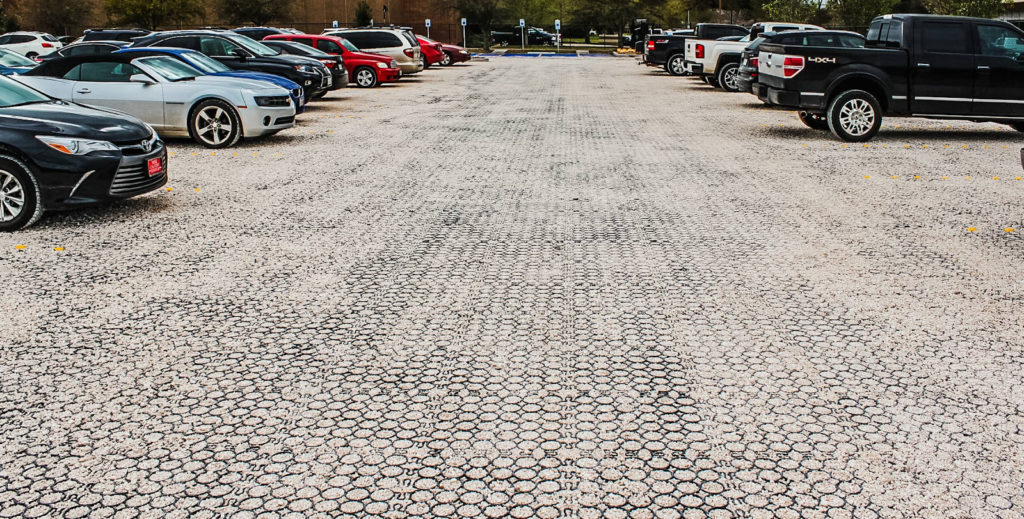
Made from 100% recycled plastic, these eco-friendly pavers are incredibly durable and require almost no maintenance once they’ve been installed. The installation process is very simple and takes no time at all compared to concrete and asphalt,. Depending on project size it may able to be completed in a single day. The interlocking pavers grids are laid over a level bed of angular gravel, and more gravel is then filled and leveled with a heavy roller . You can even make it a family or company event, since everyone can help.
This creates a parking lot with no need for added drainage systems,c an even eliminate the need for a detention pond, and one that can stand up far better to the everyday traffic that parking lots tend to see. TRUEGRID pavers are do not absorb heat like asphalt, and will not degrade or crack over time like concrete. A TRUEGRID lot will drain at over 1000 inches per hour with little or no maintenance for up to 60 years.
Make the Best Choice for Your Business
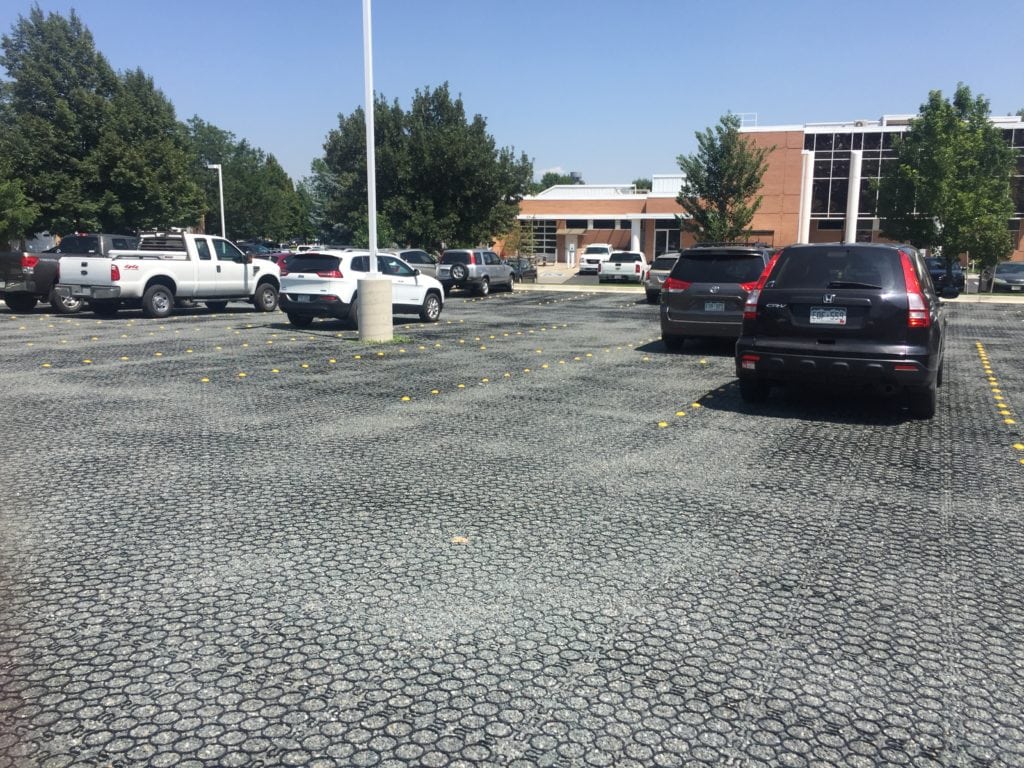
A parking lot is no small investment for a business owner. If you want a commercial parking lot that’s going to save you money while also performing better than concrete or asphalt, you should consider installing a permeable paver parking lot from TRUEGRID. It is better for the environment, and will save you time and money.
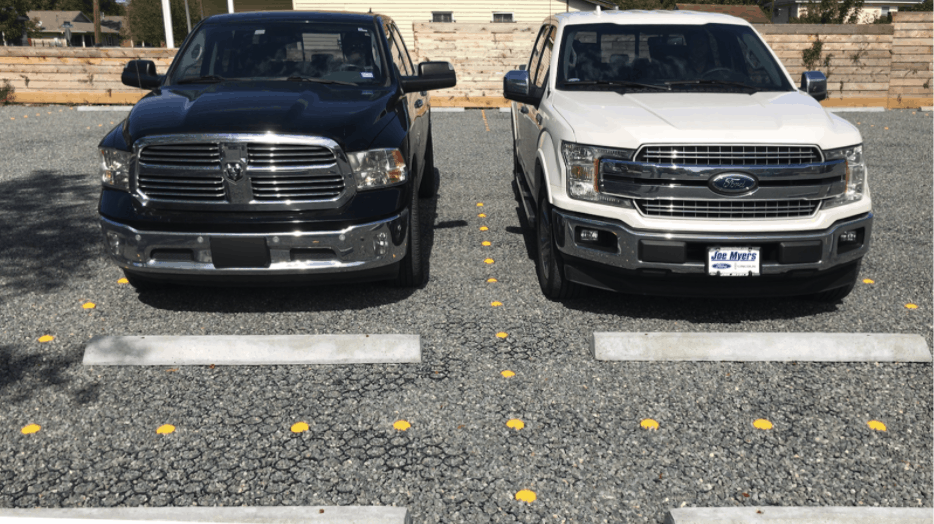
Because of the lack of a need for a drainage system, and the superior durability of the pavers themselves, permeable paver parking lots from TRUEGRID save business owners money both in the short-term and the long-term. If you expect to see regular traffic coming through your parking lot, you want to build it with materials that aren’t going to break down in the heat or become degraded from regular use.
With a lightning-fast installation process and almost no maintenance cost over the entire life of the parking lot, permeable pavers from TRUEGRID will give you a better looking and better-performing parking lot for less money.
If you’ve ever had to deal with driveway erosion, you’re probably already well aware of the negative impact it can have on your driveway and even the health of your vehicles. Driveway erosion is one of the most common problems that homeowners encounter and it typically shows up near concrete or asphalt driveways. Impermeable materials like these are the most common reasons for driveway erosion because it’s their impermeability that actually creates the potential.
In case you’ve been dealing with this problem and you want some tips on driveway erosion control, let’s go over some of its most common causes and how you can implement a driveway erosion control strategy to solve your problems for good.
What Causes Driveway Erosion?
The most common cause of driveway erosion is flowing water. This usually comes from the downspouts on your home being directed to flow down the driveway into the street where stormwater can then flow into the sewer.
The problem with concrete and asphalt driveways is that the water tends to flow along the sides of the driveway. This flow creates a pool of water over time and eventually, the water begins to seep underneath the driveway. Once water gets underneath your driveway, big problems are coming. The sand or sediment is washed out from underneath the pavement and puddles and holes begin to develop.
Left unchecked, you could end up with a giant sinkhole beneath your driveway that could end up ruining the suspension (and more) on your vehicles if they happen to be parked when your driveway finally collapses.
How to Control Erosion Near a Concrete or Asphalt Driveway
If you want to prevent erosion near your driveway, direct any downspouts away from it. Of course, you could still end up with erosion from direct rainfall over time, which is why you’ll need to seal your concrete driveway with caulking to prevent water from leaking in.
Mudjacking is a process you could turn to if you already have a washed-out driveway, but it’s expensive and time-consuming.
The Best Driveway Erosion Solution
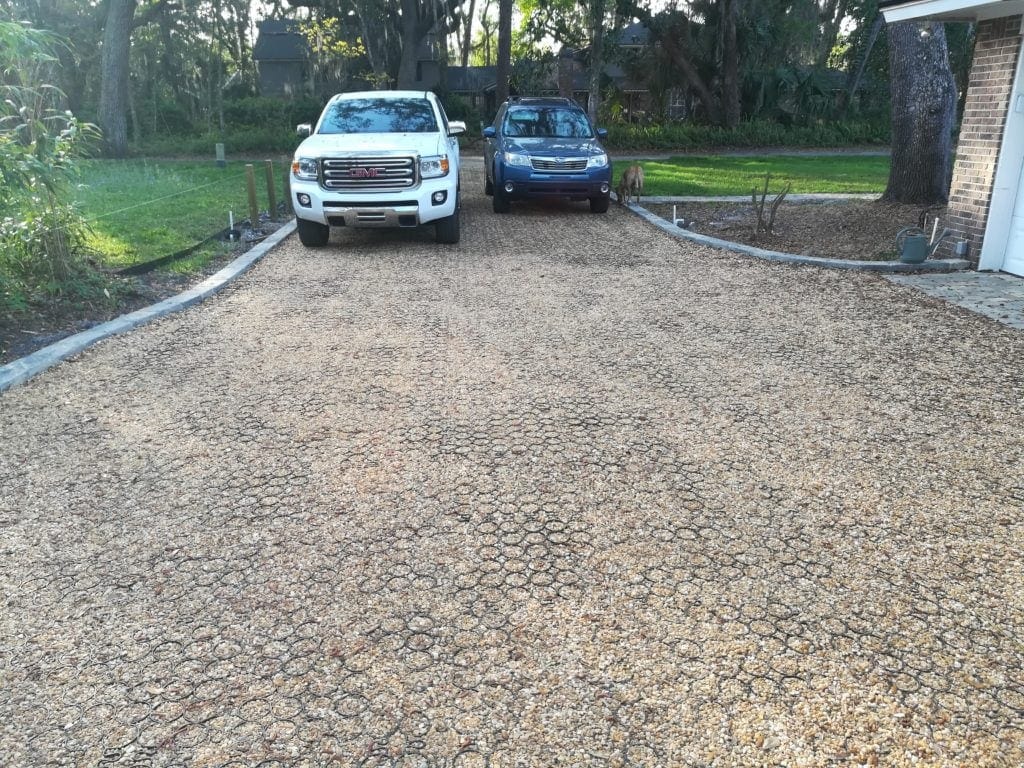
The best driveway erosion control solution is to have a permeable paver driveway from TRUEGRID installed. The permeable paver system from TRUEGRID is completely impervious to driveway erosion because the pavers are 100% permeable and allow all water to pass right through and into the soil or a detention pond beneath.
Thanks to an ingenious layout that uses hard angular aggregate (like gravel) laid beneath the pavers and compacted into the top layer, the interlocking paver grids create a lightweight, easy-to-install erosion-proof driveway that is more durable than concrete or asphalt.
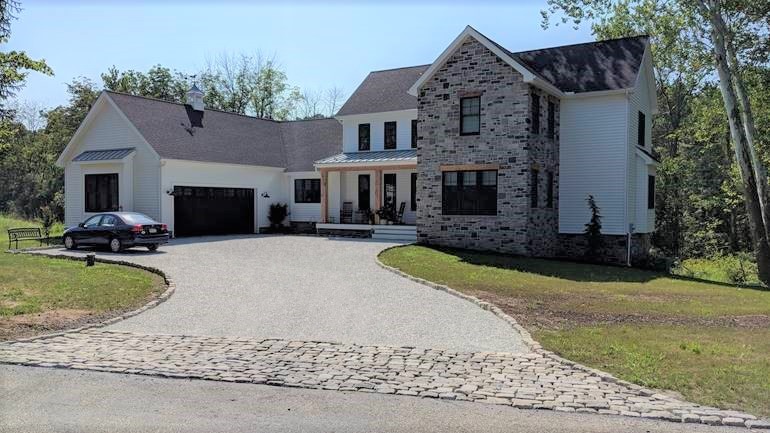
A driveway created with TRUEGRID permeable pavers simply doesn’t experience washout or erosion because it provides a continuous, unblocked path for stormwater to pass through. The subgrade of your driveway will be excavated, and a cloth laid down to prevent the soil beneath from migrating upwards into the gravel. Then, the subgrade is filled in with gravel and compacted before the 100% recycled plastic pavers are laid over the top.
These pavers are versatile and can be easily trimmed to fit your driveway. Once they are set in place more gravel will be poured over the top and compacted into the pavers to create an even surface that can handle even the most frequent of driveway traffic with ease.
TRUEGRID Driveways Come in Many Shapes and Sizes
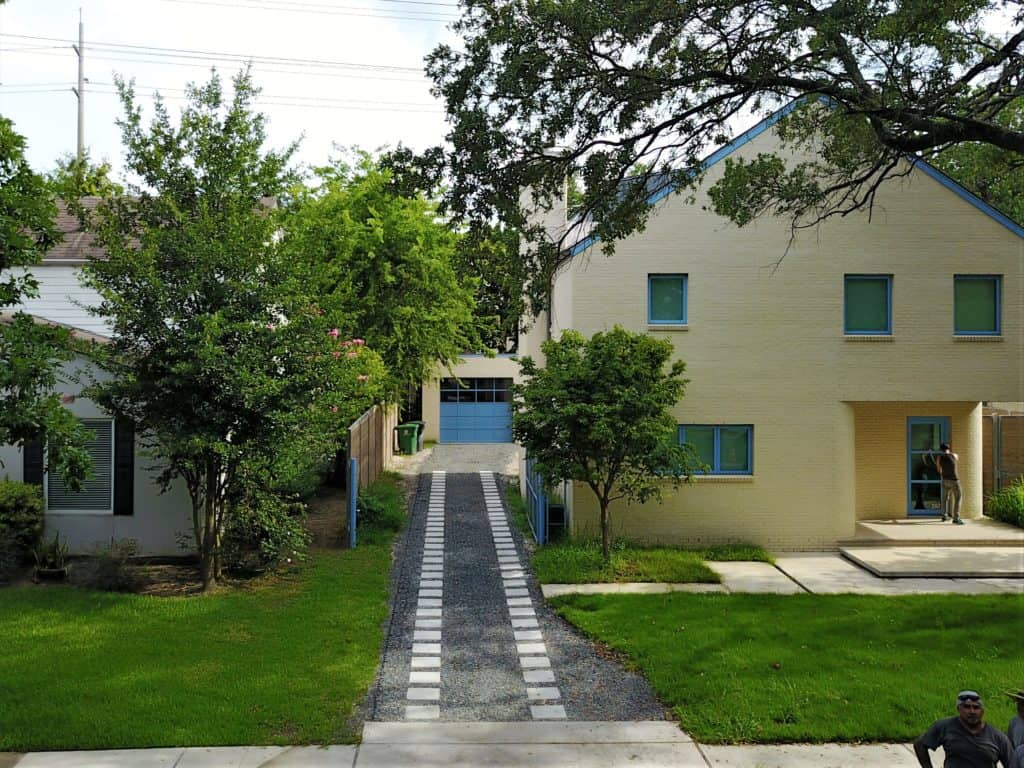
One of the reasons why TRUEGRID pavers are a preferable alternative to other driveway erosion control methods is because they’re inexpensive, easily installed, eco-friendly and very customizable. It doesn’t matter what kind of driveway you had before, you can replace it with a permeable paver version of the same color and shape without sacrificing anything in terms of aesthetic appeal.
Don’t Wait Until It’s Too Late
Driveway erosion control is essential to preventing catastrophic damage or injury to you and your property. Washouts beneath your driveway can ruin it or even collapse your driveway entirely. There are expensive, time-consuming ways to fix an eroded driveway, but they are more trouble than they’re worth most of the time. The smarter method of driveway erosion control would be to install a TRUEGRID permeable paver driveway instead.
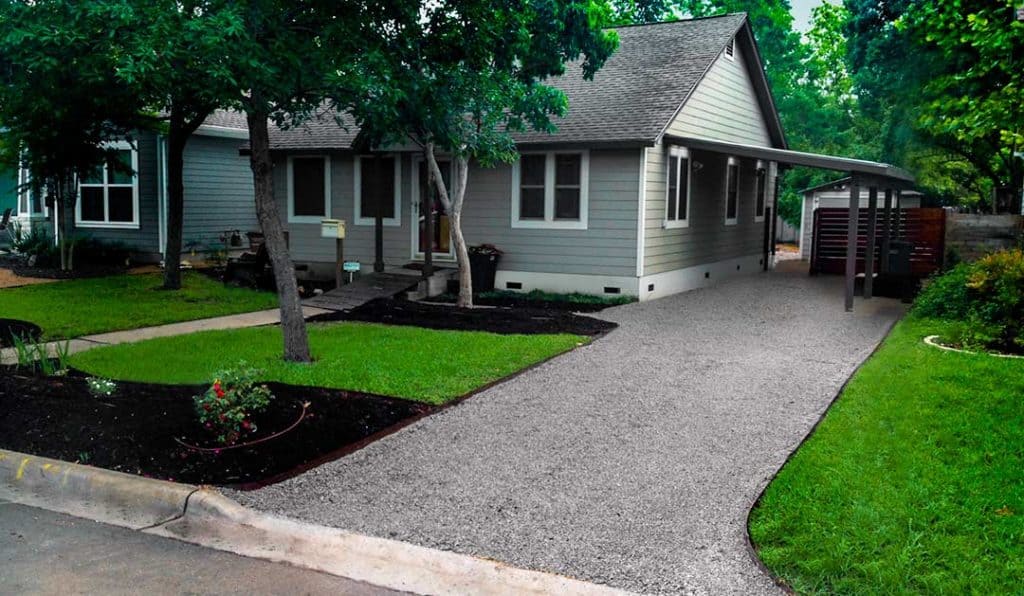
With a driveway built from permeable pavers and aggregate, you’ll never have to worry about driveway erosion, even if you have your downspouts directed down your driveway. Even the heaviest of rains will simply drain right through your driveway into the soil below, leaving you with a solid, sturdy, and reliable driveway.
Don’t put yourself or your vehicle at risk of suffering a washout. Instead, implement the smartest driveway erosion control solution out there by installing a permeable paver driveway from TRUEGRID.
Commercial businesses need efficient parking lots. They provide a place for people to park, but they also help add to the look of professionalism to a building and serve as a pathway for stormwater to runoff to somewhere safe like a sewer or detention pond. Many business owners will use asphalt if they’re planning to build a commercial parking lot, but with so many alternatives available in 2020, you shouldn’t decide to use asphalt before you’ve taken a few important factors into consideration.
In case you’re planning on installing a commercial parking, let’s go over some of the most important things to take into consideration before you make your final decision:
1. Hidden Costs
The cost of asphalt may appear as the least expensive option. But that is not always the case. In new construction, what are your drainage options? What are your stormwater detention requirements? Can you use as much of your land as you want to or are you space restricted? An impervious surface like asphalt means your building and/or parking lot has a smaller footprint due to code restrictions. With an asphalt parking lot, you aren’t just paying for the initial cost of the materials and installation. You’ll also have to pay for recurring maintenance, which is required depending on how much traffic you get and the climate in your area.
2. Drainage
Impermeable materials like asphalt and concrete do not allow stormwater to pass through, meaning that you will need to include a drainage system for your parking lot if you choose asphalt. Drainage systems are an additional expense and can take quite a while to install.
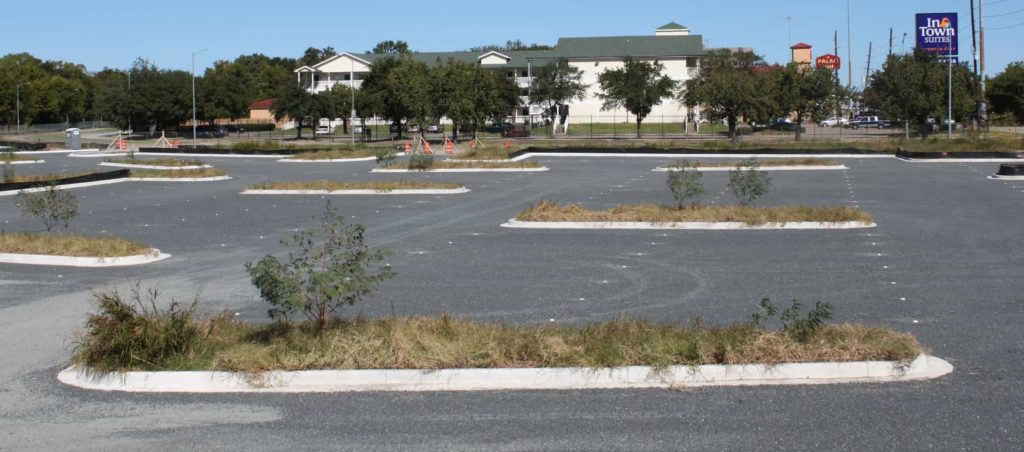
Permeable parking lots like those built with gravel and permeable pavers, work as natural drainage systems. Now your entire lot acts as a French drain. Heavy rains can be absorbed instantly at over 1000 inches per hour. They can perform just as well as asphalt in all other areas, but provide a path for stormwater to pass right through and into the soil below or a detention pond.
3. Style
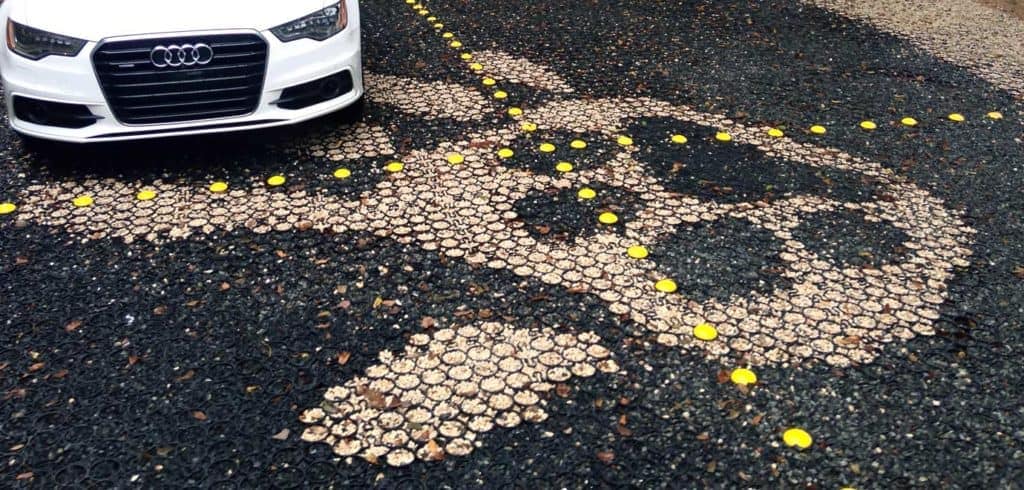
Asphalt parking lots are typically one color, black. They get uglier with age. They are hot in the summer and often get torn up by trucks. Outside of different colored lot lines like white or yellow, stylistically your options are highly limited with asphalt. Permeable paver parking lots, on the other hand, can be filled with any color gravel and delineated with a variety colored parking markers to compliment your building.
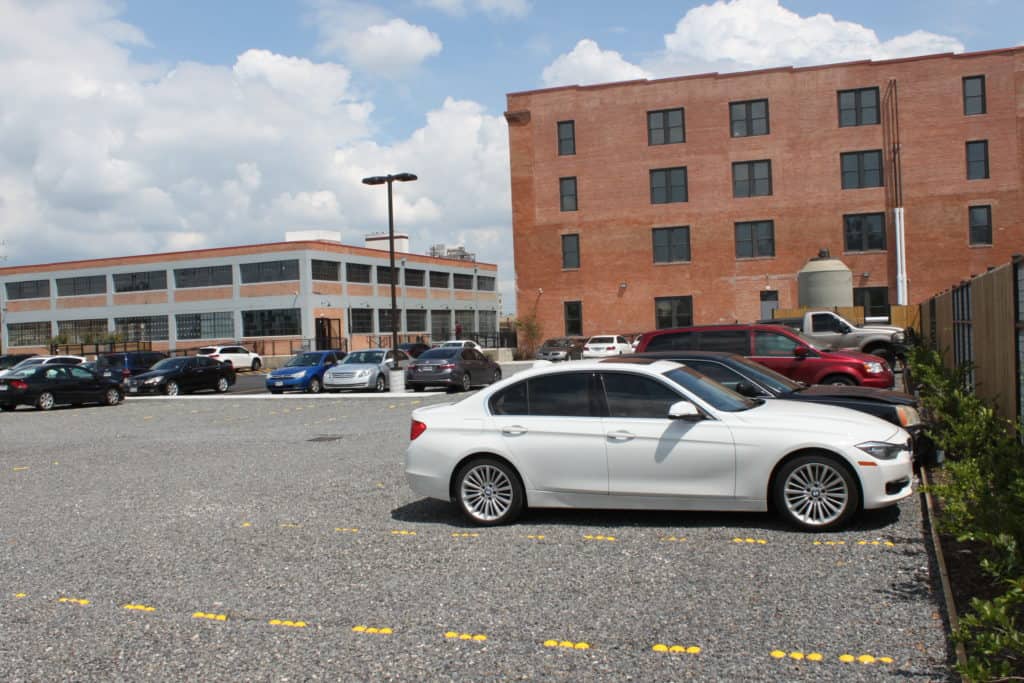
Permeable pavers are also available in different varieties such as grass, commercial, or industrial. They will provide you with more flexibility to experiment with different styles and they have the added benefit of being incredibly simple to install.

4. Recurring Maintenance
There are even more recurring maintenance requirements of asphalt than we’ve already mentioned. For instance, the lot lines. Painted lot lines wear out quickly and need to be repainted often.
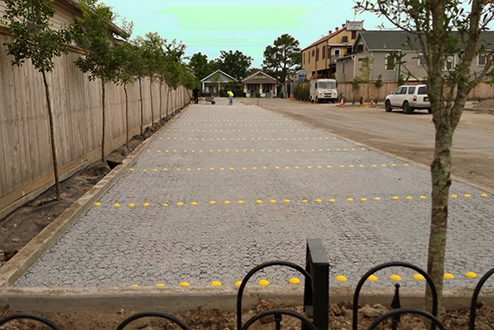
If you choose permeable pavers, you could use SuperSpot® parking markers which snap right into place within the pavers and act as durable, highly-visible lot lines. The parking markers come in different colors and are a maintenance free way to stripe.
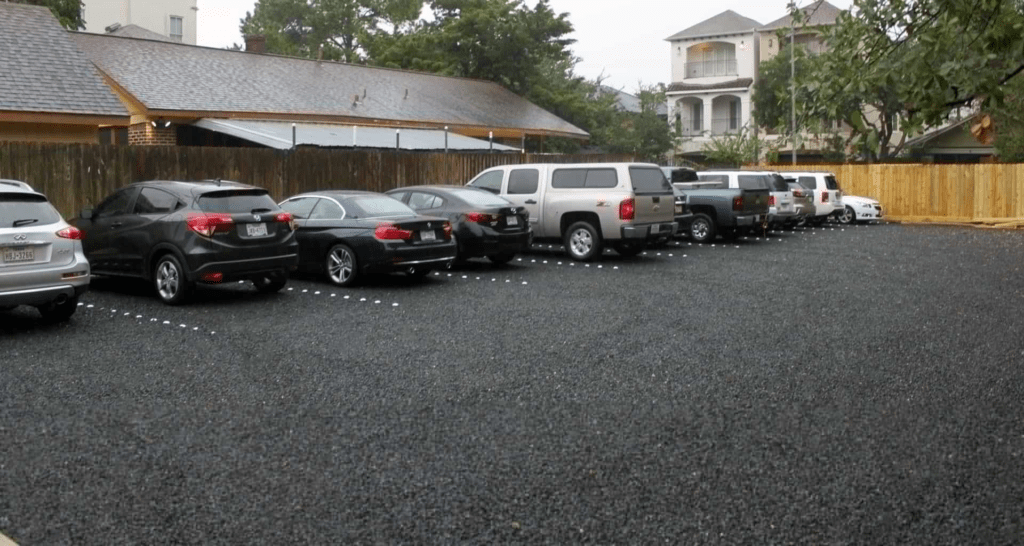
5. Sustainability
If you’re looking for more sustainable parking lot options, asphalt is a terrible choice. It is harmful to the environment, uses toxic sealants and allows stormwater pollutants to flow directly into aquifer recharge. The production, transportation, installation, and maintenance of asphalt parking lots is not eco-friendly in any way.

Different types of commercial parking lots such as grass lots built with pavers are far more sustainable and eco-friendly. They sacrifice nothing in the way of durability or functionality, and even give you the ability to create hidden parking lots that blend in seamlessly with the grass around them.
Weigh Your Options Carefully
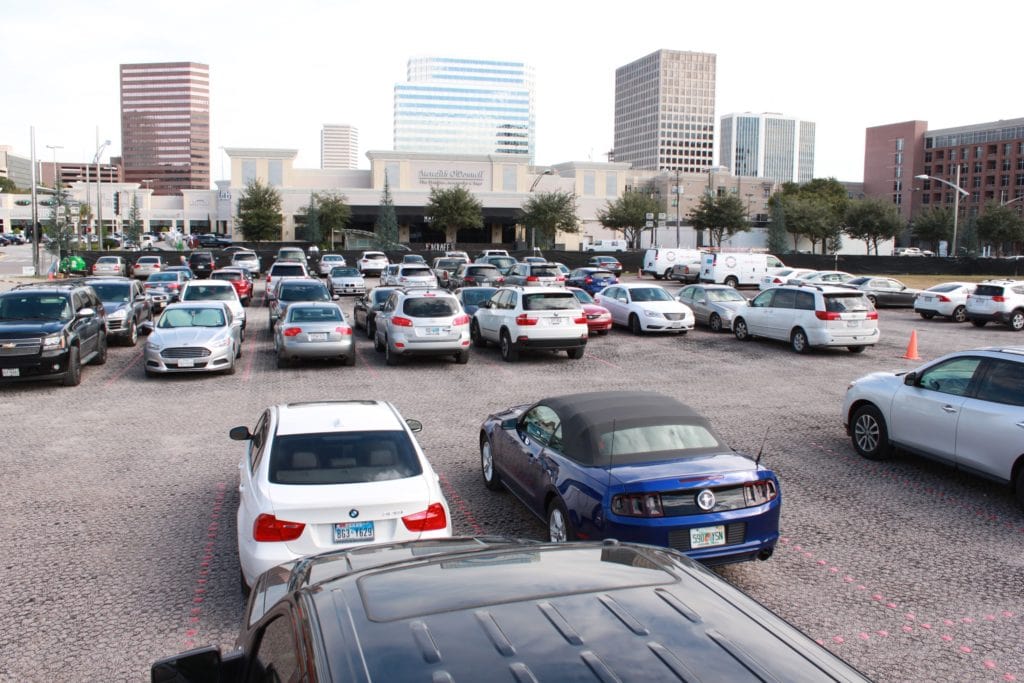
The decision to install a commercial parking lot is not one that should be done without considering all of the options. Asphalt as a paving material has many negative aspects and in many cases happens to be more expensive than some of the alternative options.
Often less expensive, always more durable and functional options like TRUEGRID permeable pavers are a great alternative to asphalt parking lots in a variety of ways. If style is your main point of focus, you have plenty of great looking options including grass lots, a variety of different colored gravel lots. Your parking lot is the welcome mat to your business. Greet your clients with style.

The superior sustainability, drainage, and durability combined with a lower cost and less maintenance needs make TRUEGRID permeable pavers the best option when it comes to building a commercial parking lot. They are inexpensive and easy to install, but they also stand toe-to-toe with common commercial parking lot materials like concrete and asphalt when it comes to sheer performance.

